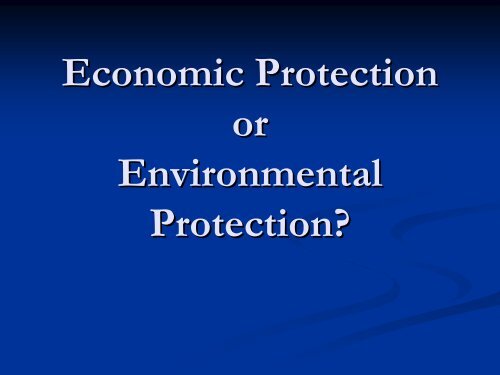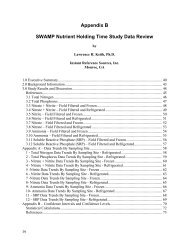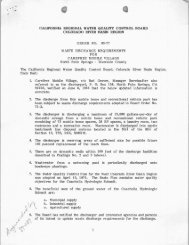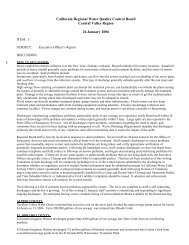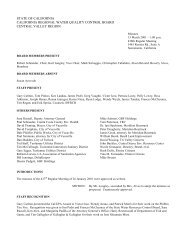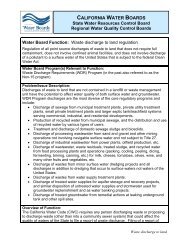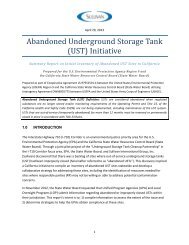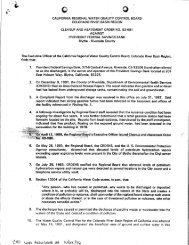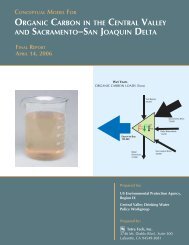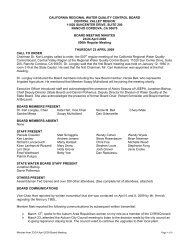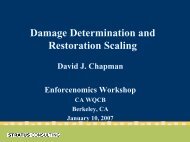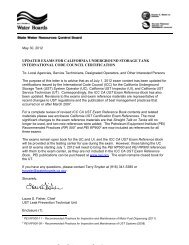Mark Bradley
Mark Bradley
Mark Bradley
Create successful ePaper yourself
Turn your PDF publications into a flip-book with our unique Google optimized e-Paper software.
Economic Protection<br />
or<br />
Environmental<br />
Protection?
Why have a Workshop about the Economics of<br />
Environmental Enforcement?<br />
What does Economics have to do with<br />
Enforcement?
Who is this group?<br />
• A city council member or mayor<br />
• A county supervisor<br />
• A person associated with water supply, conservation,<br />
and production<br />
• A person associated with irrigated agriculture<br />
• A person associated with industrial water use<br />
• A person from a responsible NGO associated with<br />
recreation, fish, or wildlife<br />
• Two people with special competence in areas related to<br />
water quality problems<br />
• A person without any specific required experience
Who is this group?<br />
• An attorney qualified in water supply and water rights law<br />
• A civil engineer qualified in water supply and water rights<br />
• An engineer experienced in sanitary engineering and water<br />
quality<br />
• A person qualified in water quality<br />
(One of the above must also be qualified in water supply and water<br />
quality relating to irrigated agriculture)<br />
• A person without any specific required experience
What’s s missing from those groups?
What about our Regulations?<br />
• Federal Requirements to assess the costs,<br />
benefits, and economic impacts of regulation<br />
• State requirements to assess the economic costs<br />
and feasibility of regulation<br />
• Penalty considerations of small communities<br />
with financial hardship<br />
• Penalty considerations of ability to pay, ability to<br />
continue in business, recovery of economic<br />
benefit
There are plenty of directives to consider<br />
economics, even some information about how<br />
to consider economics, but it’s s often interpreted<br />
as a “mitigating” factor.
So why do we view this as a<br />
choice between Economic<br />
Protection<br />
and<br />
Environmental<br />
Protection?
Who’s s interest does it serve to<br />
allow these to be separate,<br />
competing issues?
Should a business be allowed to<br />
pollute if they’re located in a place<br />
where they cannot economically<br />
meet environmental requirements?<br />
Who actually pays the cost of<br />
environmental degradation?
How can we integrate economic<br />
considerations, so that when we<br />
look at a permit or an enforcement<br />
action we don’t t fall into the trap of<br />
competing interests, but instead<br />
see the who picture and the whole<br />
cost?


